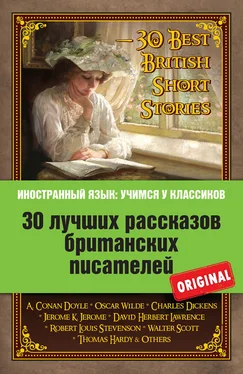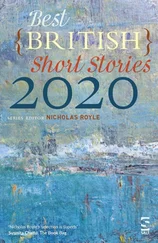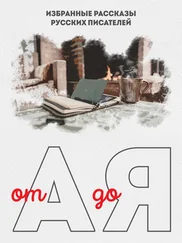‘I had thoughts of entering public life once myself,’ remarked the Duck; ‘there are so many things that need reforming. Indeed, I took the chair at a meeting some time ago, and we passed resolutions condemning everything that we did not like. However, they did not seem to have much effect. Now I go in for domesticity, and look after my family.’
‘I am made for public life,’ said the Rocket, ‘and so are all my relations, even the humblest of them. Whenever we appear we excite great attention. I have not actually appeared myself, but when I do so it will be a magnificent sight. As for domesticity, it ages one rapidly, and distracts one’s mind from higher things.’
‘Ah! the higher things of life, how fine they are!’ said the Duck; ‘and that reminds me how hungry I feel;’ and she swam away down the stream, saying, ‘Quack, quack, quack.’
‘Come back! come back!’ screamed the Rocket, ‘I have a great deal to say to you;’ but the Duck paid no attention to him. ‘I am glad that she has gone,’ he said to himself, ‘she has a decidedly middle-class mind;’ and he sank a little deeper still into the mud, and began to think about the loneliness of genius, when suddenly two little boys in white smocks came running down the bank, with a kettle and some faggots.
‘This must be the deputation,’ said the Rocket, and he tried to look very dignified.
‘Hallo!’ cried one of the boys, ‘look at this old stick! I wonder how it came here;’ and he picked the Rocket out of the ditch.
‘OLD STICK!’ said the Rocket, ‘impossible! GOLD STICK, that is what he said. Gold Stick is very complimentary. In fact, he mistakes me for one of the Court dignitaries!’
‘Let us put it into the fire!’ said the other boy, ‘it will help to boil the kettle.’
So they piled the faggots together, and put the Rocket on top, and lit the fire.
‘This is magnificent,’ cried the Rocket, ‘they are going to let me off in broad day-light, so that everyone can see me.’
‘We will go to sleep now,’ they said, ‘and when we wake up the kettle will be boiled;’ and they lay down on the grass, and shut their eyes.
The Rocket was very damp, so he took a long time to burn. At last, however, the fire caught him.
‘Now I am going off!’ he cried, and he made himself very stiff and straight. ‘I know I shall go much higher than the stars, much higher than the moon, much higher than the sun. In fact, I shall go so high that–’
Fizz! Fizz! Fizz! and he went straight up into the air.
‘Delightful!’ he cried, ‘I shall go on like this for ever. What a success I am!’
But nobody saw him.
Then he began to feel a curious tingling sensation all over him.
‘Now I am going to explode,’ he cried. ‘I shall set the whole world on fire, and make such a noise that nobody will talk about anything else for a whole year.’ And he certainly did explode. Bang! Bang! Bang! went the gunpowder. There was no doubt about it.
But nobody heard him, not even the two little boys, for they were sound asleep.
Then all that was left of him was the stick, and this fell down on the back of a Goose who was taking a walk by the side of the ditch.
‘Good heavens!’ cried the Goose. ‘It is going to rain sticks;’ and she rushed into the water.
‘I knew I should create a great sensation,’ gasped the Rocket, and he went out.
A.J. Alan
My Adventure in Norfolk
bungalows– a bungalow is a small one-storied house with a veranda
Norfolk– a historic county on the North Sea coast in eastern England
Norwich– a city in Norfolk; the first settlement was founded in Saxon times; in the 12th century, in the times of the Danes, and later, after the Norman Conquest, Norwich became an important market centre
Stacy Aumonier
Where Was Wych Street?
Wapping– an area in eastern London
the old Globe Theatre– a theatre built in 1599 on the south bank of the Thames and famous for the performance of the greatest Shakespeare’s plays; it remained in use until 1644
Covent Garden– 1) London’s wholesale flower, fruit and vegetable market in central London at the time when the story was written; 2) the Royal Opera House which is near the place where the market used to be
the Strand– the street in central London linking the West End and the City of London
Waterloo Station– a main line railway station in London
hors de combat– disabled due to the wound or injury
K. C.– King’s Counsel
Kingsway– a street in central London where companies’ offices are located
the Aldwych Theatre– a theatre on the corner of Drury Lane in the West End, built in 1905
Lancashire– a county in northwestern England
Bakkan– a province and city in Vietnam
M.P.– Member of Parliament
Chancery Lane– a street in central London where lawyers’ offices are located
the Law Courts– the main building of the House of Justice where all important judicial decisions are adopted
New Oxford Street– a street in central London, the shopping centre of the city
Lincoln’s Inn Fields– a street in central London
inamorata– sweetheart, beloved ( Italian )
Knightsbridge– an area in west-central London with expensive jewellers’ and antique shops
Sabine Baring-Gould
Aunt Joanna
cromlechs– in prehistoric architecture, a cromlech is a circle of stones enclosed by a broad rampant
Cornwall– a historic county on the Atlantic coast in southwestern England
St. Yves– a coastal town in Cornwall
Wesleyanism– the Wesleyan church, one of the Protestant churches, founded by John Wesley (1703–1791), a clergyman and church reformer; the members of the Wesleyan church promise to live a sinless life
Sarah– a biblical figure, in the Old Testament, the wife of Abraham and the mother of Isaac
Abraham– in the Old Testament, the first of the Hebrew patriarchs, revered in Judaism, Christianity and Islam
Hagar– in the Old Testament, Sarah’s maid and Abraham’s mistress, the mother of his illegitimate son, Ishmael
Britannia metal– the alloy composed of tin, antimony and copper, used for making household utensils
Penzance– a town in Cornwall where the English Channel joins the Atlantic Ocean
escutcheon– a metal plate placed on a wooden article either to decorate it or to protect the wood
James Matthew Barrie
The Inconsiderate Waiter
Chartreuse– the liqueur made from more than 130 different plants by the monks of La Grande Chartreuse in France
Derby– one of the most famous English horse races, an annual event since 1730; the Derby is run on the first Saturday in June
cheroot– a thin cigar open at both ends
claret– famous Bordeaux wine made since Roman times in the region around the city of Bordeaux in France; the word claret is not used in modern French
hansom– a low two-wheeled open carriage with the elevated driver’s seat
West Kensington– a fashionable district in central London
Читать дальше
Конец ознакомительного отрывка
Купить книгу












